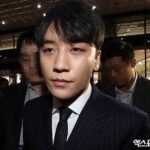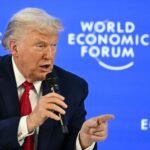Currently, numerous opinion polls are being conducted in South Korea. Among them, one of the most striking findings is the approval rating of President Yoon Suk-yeol. This year, his approval rating has reached 40%, prompting calls for the nullification of his impeachment. In response, around 40 People Power Party (PPP) lawmakers have seemingly aligned with protestors opposing Yoon’s arrest, even attempting to block his arrest warrant. However, these polls have raised significant concerns about bias, with questions about the methodology and reliability of these surveys coming to light.
The two most frequently cited polling agencies in the media are Realmeter, which uses automated response surveys (ARS), and Gallup Korea, which conducts direct phone interviews. The results from these two agencies often differ by about 5%, with Realmeter leaning slightly conservative and Gallup Korea leaning more progressive. Conducting polls that account for voter behavior differences can yield more balanced results, helping voters and politicians make meaningful judgments. Notably, these two agencies have decided to halt polling regarding the president post-impeachment, deeming such surveys irrelevant.
The controversy, however, intensifies with another polling agency, Public Opinion Fairness Co., Ltd. (여론조사공정㈜). This agency, commissioned by Dailian, conducted an unusual poll asking voters which presidential candidates they would “never vote for.” Unsurprisingly, Democratic Party leader Lee Jae-myung ranked overwhelmingly first. However, Public Opinion Fairness Co. faces severe criticism for its credibility and objectivity. The agency is closely associated with far-right organizations and controversial groups like the Esther Prayer Movement, known for spreading hate speech and fake news targeting marginalized groups such as LGBTQ+ individuals, refugees, and Muslims. This connection raises serious doubts about the impartiality of its surveys. The fact that Dailian entrusted such a survey to this agency suggests a deliberate effort to reinforce specific political narratives rather than maintain journalistic neutrality.
The issues with polling do not end there. Around the same time, Realmeter released party approval ratings showing the PPP at 34.4%, recovering to pre-martial law levels, while the Democratic Party fell sharply to 45.2%. This could be interpreted as public approval of the PPP’s recent actions.
However, conservative outlet Chosun Ilbo dismissed these findings, with experts cautioning that such polls may reflect an abnormal consolidation of far-right support rather than an accurate representation of public sentiment. Obsessing over such approval ratings risks misleading the public and distorting the political landscape.
Recently, pro-Yoon lawmakers like Yoon Sang-hyun and Kim Min-jun joined anti-impeachment protests outside the presidential residence in Hannam-dong. These protests were organized by the far-right Liberty Unification Party, which has spread baseless claims that the National Election Commission was infiltrated and manipulated by North Korea. Despite these claims being grounded in no factual basis, the PPP seemed to lend implicit support to these narratives. Liberty Unification Party leader Jeon Kwang-hoon, a pastor infamous for declaring, “If God messes with me, He will die,” during a 2019 rally, continues to draw attention for his inflammatory remarks. Yet, PPP lawmakers have shown solidarity with him, with Yoon Sang-hyun even bowing in a public handshake—a stark symbol of the political crisis South Korea faces today.
If the PPP continues to rely on far-right polling data and align with extremist organizations, South Korea faces a graver crisis. Should Yoon’s administration secure another term, the nation risks losing much of what it has achieved. Conversely, if the PPP’s missteps backfire and fuel greater public frustration, both the party and the country will face long-term political instability.
My political stance is centrist. I believe governance should be pragmatic—idealistic during times of plenty and realistic during times of scarcity. I strongly agree with PPP lawmaker Kim Sang-wook, who stressed the importance of having opposition parties to provide checks and balances. Granting any single party a supermajority (200+ seats) is detrimental to democratic health.
Some political analysts predict that the Democratic Party may solidify long-term power post-impeachment. While this may appear practical in the short term, it carries the risk of fostering political corruption. Democratic Party leader Lee Jae-myung, despite his decisiveness and ambition, faces legal challenges that cast doubt on his suitability for the presidency. Such checks and balances are essential to ensure a healthy democracy.
However, the PPP has no moral high ground to critique Lee Jae-myung or the Democratic Party. They continue to defend Yoon, a president accused of unconstitutional actions during the December 3 coup attempt. Worse yet, they have given a platform to organizations self-identifying as successors of the notorious Baekgol Unit, a paramilitary group infamous for violently suppressing dissent, enabling them to claim that Yoon’s arrest could trigger civil war. When PPP interim leader Kwon Young-se recently suggested that the arrest could lead to bloodshed, it underscored the party’s distorted priorities and reckless rhetoric.
Focusing on Lee Jae-myung in this context is deeply inappropriate. It only underscores the PPP’s failure to fulfill their responsibilities and their insatiable lust for power. Even if Lee becomes president and their worst fears materialize, few would absolve the PPP of responsibility. As Innovation Party leader Lee Jun-seok aptly stated: “If you didn’t want Lee Jae-myung to become president, you shouldn’t have initiated the coup.”
The real issue is not far-right polling results—they are nothing more than illusions. The priority should be to restore public trust based on common sense and constitutional principles. Both conservatives and progressives must serve as political counterbalances for the people.
The PPP must reflect on what they must abandon to move forward. It is not “conservatism” that must be abandoned, but their toxic ties to far-right extremism. Only by severing these ties and enacting genuine reforms can they hope to regain public trust. Without this, they risk endangering both themselves and the nation.
submitted by /u/Big-Relative-349
[link] [comments]














